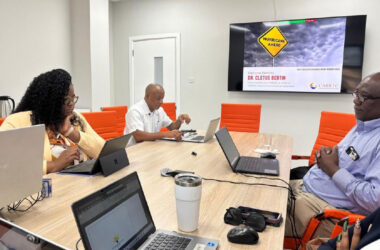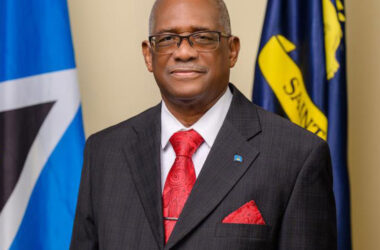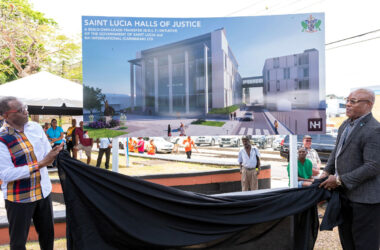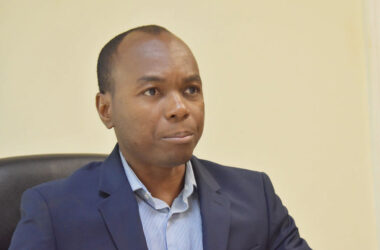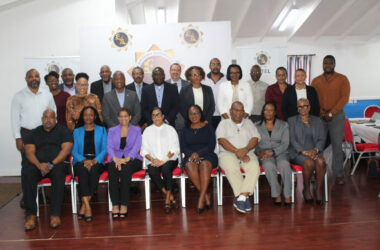A Handover Ceremony for the Solar Photovoltaic Power Generation (PV) Plant with Battery and Building Energy Management Systems (BEMS), was held on 11 th January, 2022 in Georgetown, Guyana.
In attendance were His Excellency Dr. Mohamed Irfaan Ali, President of the Cooperative Republic of Guyana, His Excellency Tatsuo Hirayama, Ambassador of Japan, Honourable Brigadier General (Ret’d) Mark A. Phillips, Prime Minister of the Cooperative Republic of Guyana, Dr. Carla N. Barnett, Secretary-General of the Caribbean Community and Mr. Hiroyasu Tonokawa, Chief Representative of Japan International Cooperation Agency (JICA) Saint Lucia Office which is responsible for 10 countries in the Caribbean including Guyana.
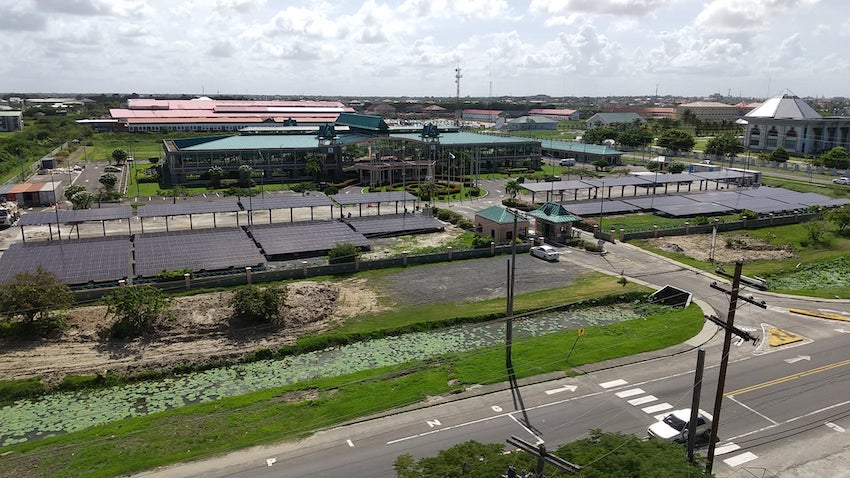
This is part of the “Project for the Introduction of Renewable Energy and Energy Conservation System in Guyana and CARICOM”, which is implemented under a US$17.8M Grant Agreement signed in June 2018 in Georgetown, Guyana, between the Government of Guyana and JICA. This project is valued at approximately US$7M.
The project aims to assist CARICOM’s efforts to promote the use of sustainable energy within the CARICOM headquarters in Guyana by introducing the PV system which is expected to generate approximately 650,000 kilowatt hours per year (kWh/year), equating to half of the annual kWh/year usage of the CARICOM Headquarters. The PV system will also be complemented by the installation of a Building Energy Management Systems (BEMS), which will control and manage the functions of the building, thereby allowing for increased energy efficiency further reducing the headquarters dependency on the electrical grid.
By actively working to reduce the dependence on fossil fuel-based electric power, the project also aims to showcase to CARICOM member states the possible ways to improve the efficiency of their energy sector, which face the shared challenges of high costs related to the importation of fossil fuels, and the emission of ozone depleting substances that contribute to climate change as a result of the use of fossil fuels for energy generation.
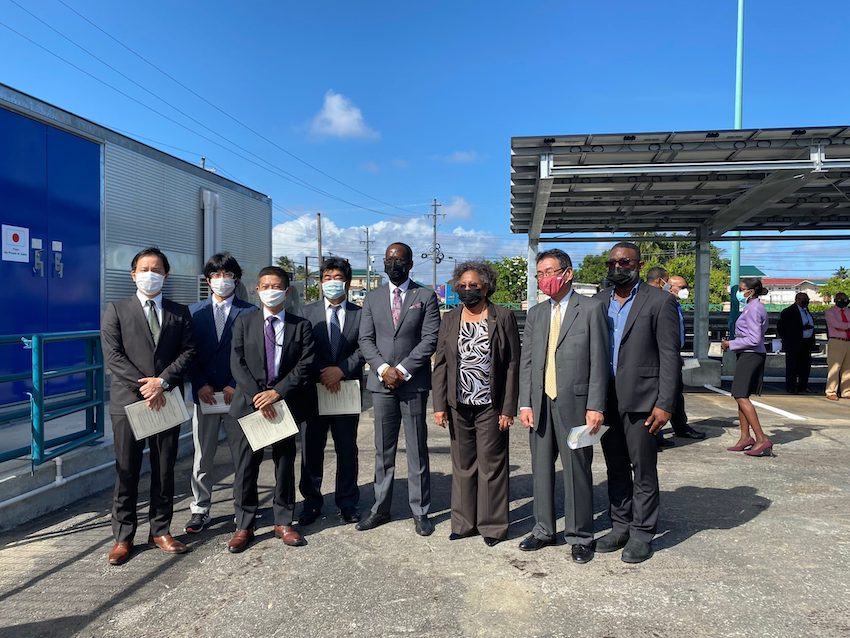
Celebrating the occasion, Mr. Tonokawa of JICA emphasized that the importance of the region’s transitioning to clean renewable energy by saying “most CARICOM Member States have been heavily dependent on fossil fuels which will not only have an adverse influence on climate change but is also the cause of high energy costs in the region. As a showcase it is expected that the project will contribute to the promotion of renewable energy in Guyana and other CARICOM Member States”. As highlighted by Dr. Barnett of CARICOM, today’s event marked a symbolic partnership. Referring to this partnership, Ambassador Hirayama indicated that the installation of a renewable energy system at CARICOM Headquarters is a significant symbol of cooperation between Japan and CARICOM and this collaboration will continue in further joint efforts to fight against shared challenges such as natural disasters, climate change and the pandemic.
Guest remarks were concluded with the keynote speech from Guyana’s President, H.E. Dr. Mohamed Irfaan Ali. Addressing the value of partnership that would lead regional and global togetherness, Dr. Ali stated “once we are together and we partner on a common agenda on a common policy framework, we can achieve great things”.
Japan’s Policy towards CARICOM, which was announced in July 2014, promises Japan’s proactive cooperation towards overcoming vulnerabilities particular to CARICOM Member States, by utilizing Japanese Technologies and expertise nurtured through its similar experience in the fields of disaster risk reduction, countermeasure against environment, climate change, energy, waste management and fisheries amongst others. JICA continues to support CARICOM’s endeavor to try to mitigate regional development challenges.



